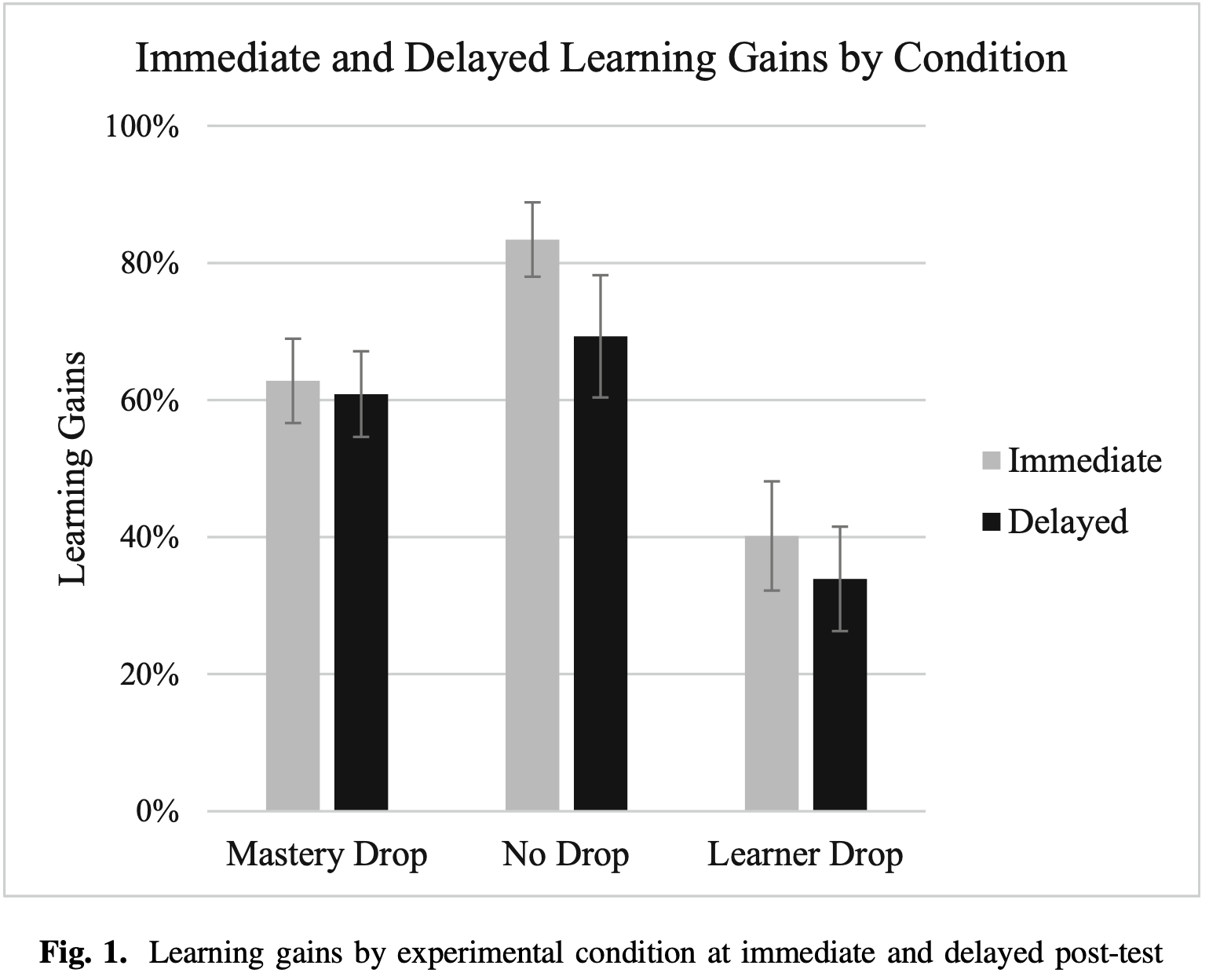Andyʼs working notes
About these notesA “skip” mechanism may help spaced repetition memory system sessions remain emotionally connected
The critical thing to optimize in spaced repetition memory systems is emotional connection to the review session and its contents. One possible lever here is to give users a low-friction way to de-prioritize material they don’t care about. In particular, perhaps we could offer a “skip” button which defers a prompt with exponential backoff. This would be a lower-stakes alternative to deletion: Spaced repetition can lower the stakes around destructive inbox-maintenance operations.
Impact on efficacy
But would this be self-defeating? Would students over-use the button to the extent that no learning would happen?
Nate Kornell and Robert A. Bjork (2008) find that “being allowed to drop flashcards had small but consistently negative effects on learning.”
68% of the items were dropped after only one correct response, and an additional 8% were dropped without having been answered correctly at all.
… Being able to drop items had especially negative effects for the 20% of participants whose study strategy was to drop items they judged difficult to learn
… In the interests of creating durable learning, items, if dropped, should be returned to later. Restudying previously dropped items provides additional spaced-learning opportunities on those items. It also identifies items that have not actually been learned and are in need of further study.
Whitmer (2020) ran an experiment on in-training Marines, giving one group the opportunity to drop cards. Those trainees had substantially worse memory in post-tests.
References
Kornell, N., & Bjork, R. A. (2008). Optimising self-regulated study: The benefits—And costs—Of dropping flashcards. Memory, 16(2), 125–136.
Whitmer, D. E., Johnson, C. I., Marraffino, M. D., Pharmer, R. L., & Blalock, L. D. (2020). A Mastery Approach to Flashcard-Based Adaptive Training. In Adaptive Instructional Systems (pp. 555–568). Springer International Publishing.